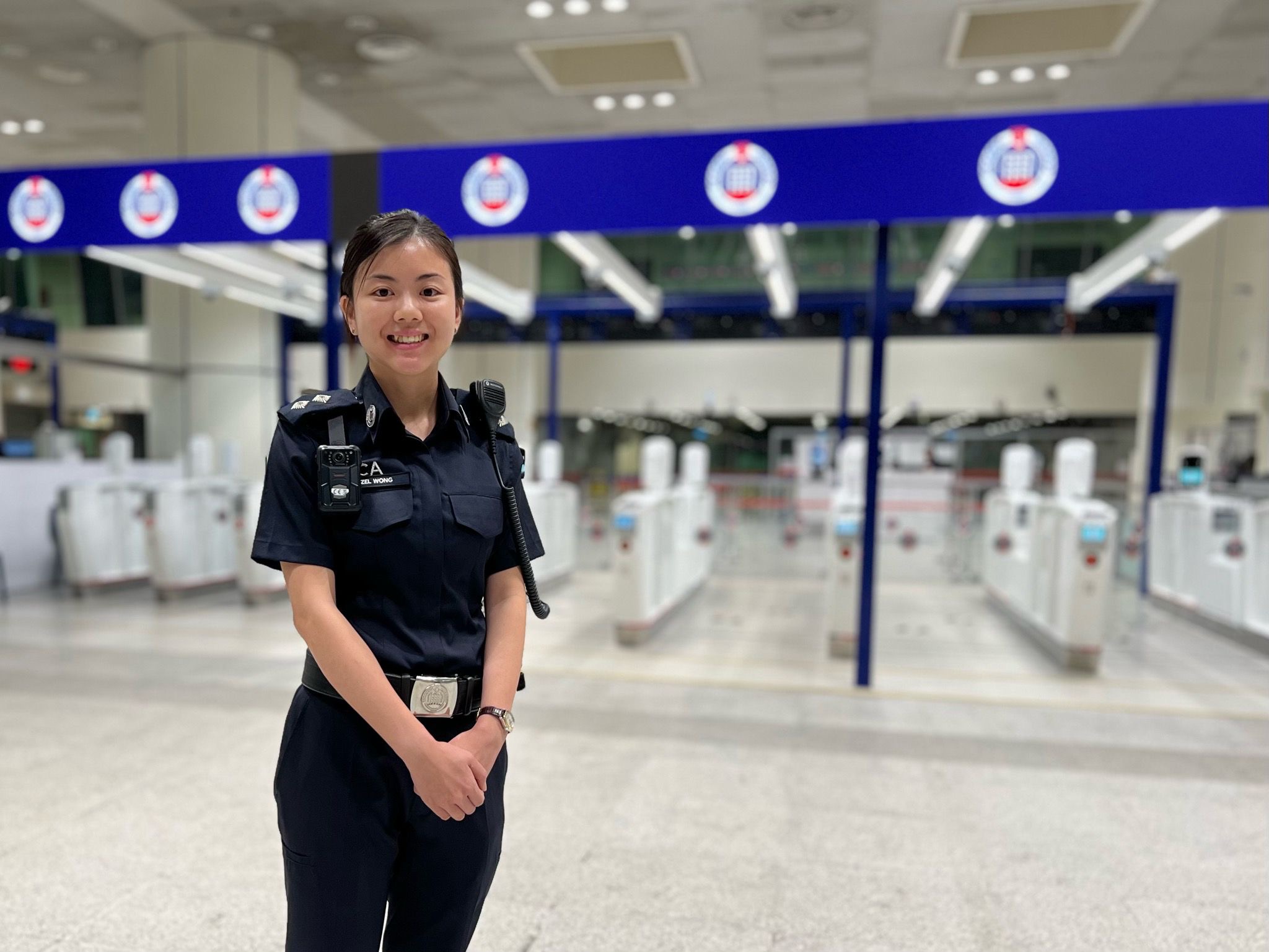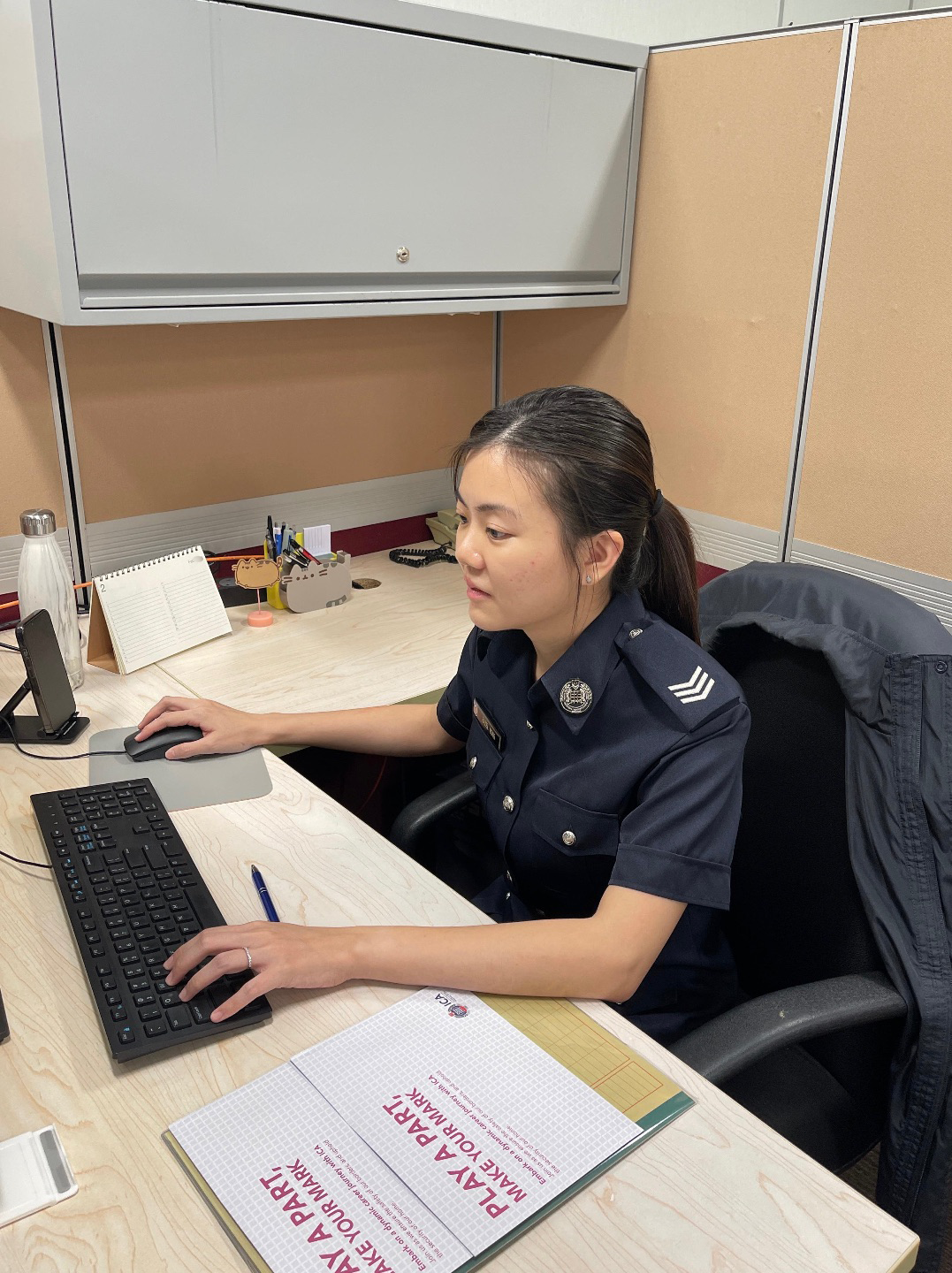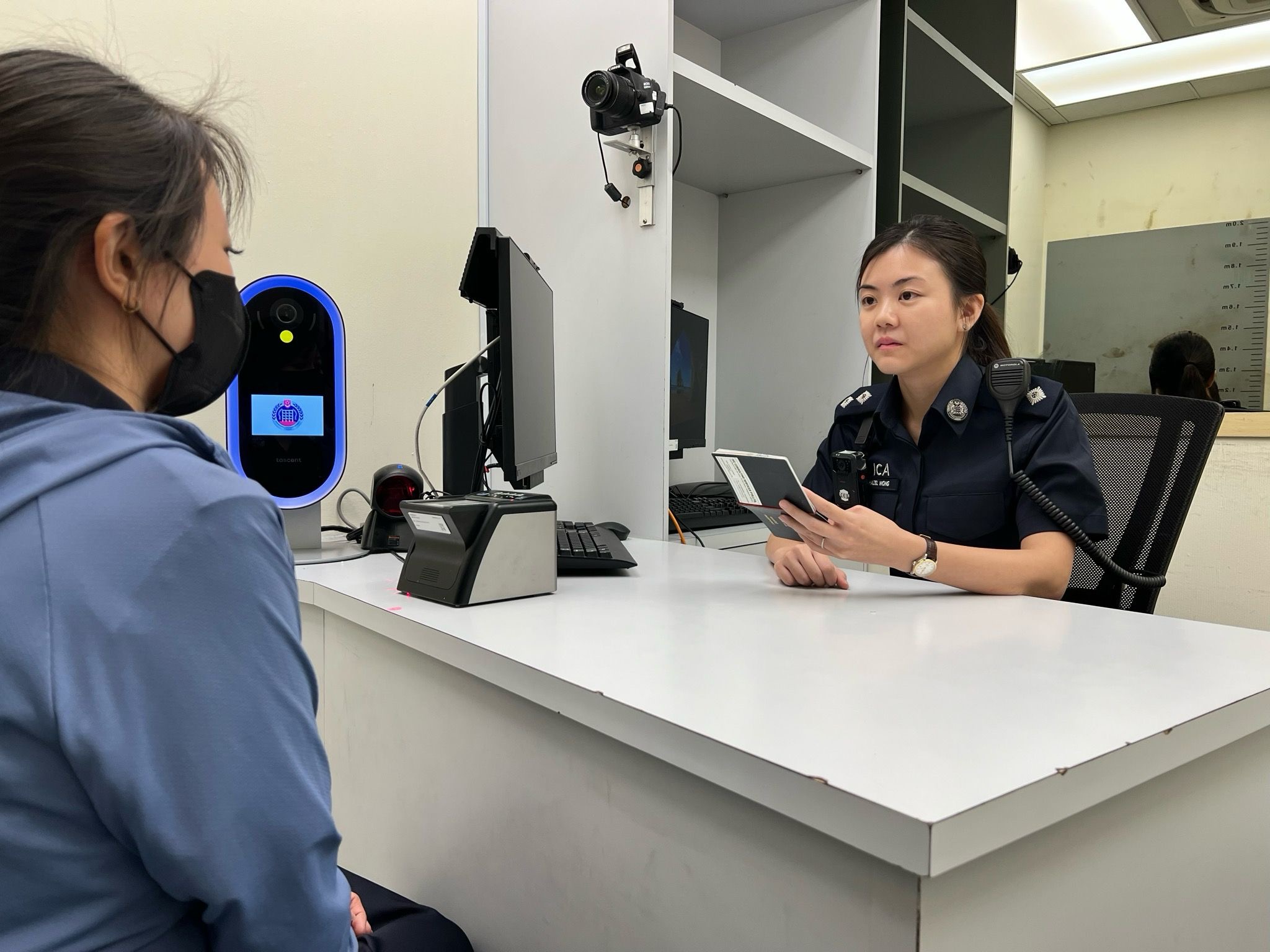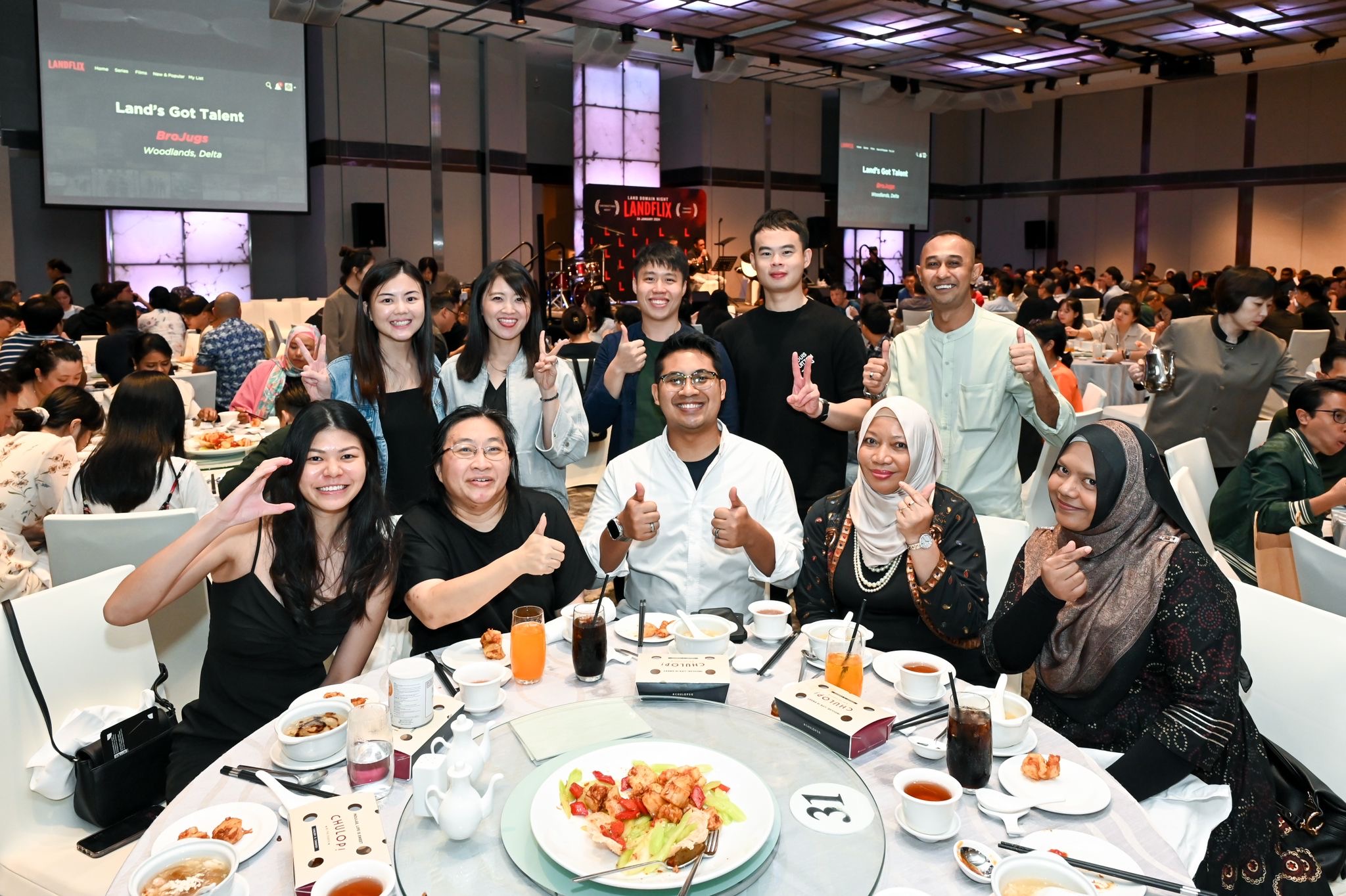Once upon a time, employees were rewarded for their loyalty.
Workers would join the workforce, get regularly promoted, and exit decades later with a fat, retirement package.
That’s no longer the status quo. Employers have moved away from loyalty-based compensation, and so have millennials, and Gen Zs after them.
Today, it’s become fairly uncommon for a young person to stay more than a couple of years at a job — let alone their very first one.
As the adage goes, it’s a job-hopper’s world.
But not for Hazel Wong.
She’s not just stayed at her first job — she’s done so for nearly 10 years.
 Photo courtesy of ICA
Photo courtesy of ICA
A millennial’s world
At 31, Wong has seen her peers adapt to the new norm of job-hopping.
In an increasingly unstable workforce, she’s seen their efforts to stay adaptable and future-proof themselves with a wide range of skills.
“Last time, [the priority] was more about stability, I wanna feed my family, things like that.
But now it’s more like, we wanna try out new things, we wanna gain new experiences.”
In that sense, Wong’s decision to stick with her first job might seem strange — even out-of-touch.
After graduating from polytechnic, she signed a four-year bond with the Immigration & Checkpoints Authority (ICA), joining them as a uniformed officer.
And after serving her bond, she signed another bond with them to further her studies under the MHA Degree Scholarship
As an unrepentant job-hopper myself, I’m curious to know if she’s ever felt like she was missing out, by not trying out other jobs.
Her answer: not really.
“It’s a career with a lot of jobs within it,” she explains.
Because ICA is such a big organisation, there’s a plethora of different roles available.
As such, there isn’t a need to leave to experience new portfolios and job scopes.
Wong herself joined as a Primary Screening Officer at Tuas Checkpoint, but has done a bunch of different roles since, including a recruitment role in HR.
She recalls: “I’d tell my friends oh, now I’m doing HR. And they’d be like, ‘Huh, you’re still in ICA?’”
 Wong, in action. Photo courtesy of ICA
Wong, in action. Photo courtesy of ICA
 A different kind of action. Photo courtesy of ICA
A different kind of action. Photo courtesy of ICA
Now, Wong is a Team Leader at Woodlands Checkpoint — a role that involves more command and control. She has around 20 to 30 officers under her.
This, too, is vastly different from her previous role as a Primary Screening Officer, which was more executive than managerial.
“Being a Team Leader is more of a decision-making role… and I also have the opportunity to connect with officers more, as a mentor.”
“You might think that [being] bonded, it’s quite a long period that you have to be in an organisation.
But when you’re there, you get to try out different roles and different things. So it doesn’t feel stagnant.”
A Gen Z-friendly job environment
When you think of what might be the ideal millennial/Gen-Z workplace, you imagine something like a tech startup: relaxed dress codes, flexible hours, unrelenting modernity.
A uniformed organisation like ICA might not be the first thing to come to mind.
“There’s this conception that signing on to a uniformed organisation, you’re kind of put into a box. It’s a very regimental kind of feeling… a male-dominated kind of environment,” Wong says.
“But over time, this has changed a lot.”
Gender representation wise, it’s relatively even. And ICA offers plenty of opportunities outside of the variety of job roles; one example is further education.
Wong herself pursued a degree six years into her career at the ICA, under the MHA Degree Scholarship.
“It’s good for my personal growth and also professionally. So I thought, ‘Why not try it out?’”
Contrary to popular belief, ICA is also tech-forward, having invested significantly in that space.
“ICA is always tied to this stereotype to being like, sitting at a counter and ‘chopping passports’,” Wong quipped.
“But definitely we are moving away from that already.”
 Photo courtesy of ICA
Photo courtesy of ICA
With the automation of immigration gates in Singapore, there is a new focus on data, analytics, and AI.
“So you can see how we are keeping up with the times. And that is what would make us relevant to Gen Zs… We are not a very backward kind of job environment.”
Sure, it’s probably more regimental than your typical tech startup. And sure, you can’t eschew your uniform for jeans and a t-shirt.
But Wong believes it is worth it.
“Signing on doesn’t have to be a very regimental thing, or [involve] being away from your family. It’s not like that…I think we do have good work-life balance.”
 Photo courtesy of ICA
Photo courtesy of ICA
Solid money
Of course, this is still work; and culture and benefits aside, it really is about bringing home the bread.
This is one area that ICA does live up to its stereotype. Like every other civil service job, it has its fair share of job security.
This is something Wong appreciates — especially because she’s seen how the bonuses have improved since she signed on.
Today, the sign-on bonus for sergeants is S$30,000. Milestone payments of S$5,000 are also issued every four years, on top of the annual 13th-month and performance bonuses.
“For some people, this means stability. Especially nowadays when things are so volatile,” Wong says.
More than this, however, the compensation is a reflection of something bigger: that ICA cares about its people.
“It shows that the organisation values people. That it’s a place where you’re being valued.”
 Photo courtesy of ICA
Photo courtesy of ICA
Find out more about what a career with ICA is like here.
Writing this ICA-sponsored article made this writer wonder why Mothership doesn’t offer a S$30,000 sign-on bonus, too.
Top image courtesy of ICA
If you like what you read, follow us on Facebook, Instagram, Twitter and Telegram to get the latest updates.

